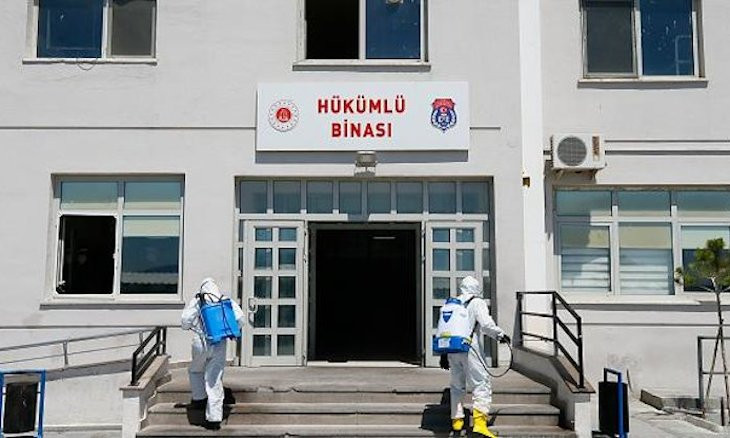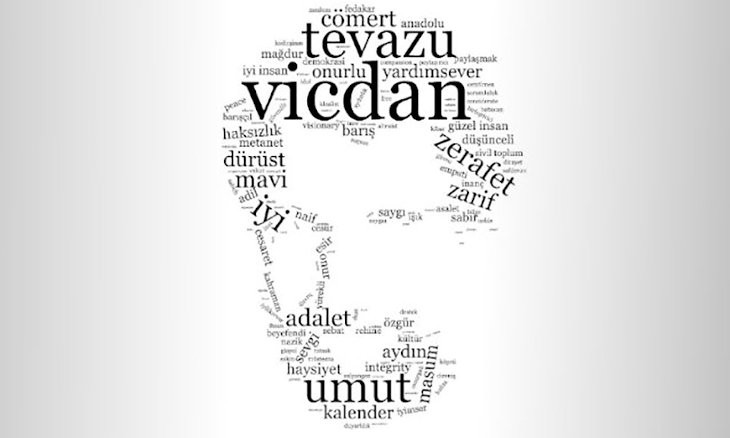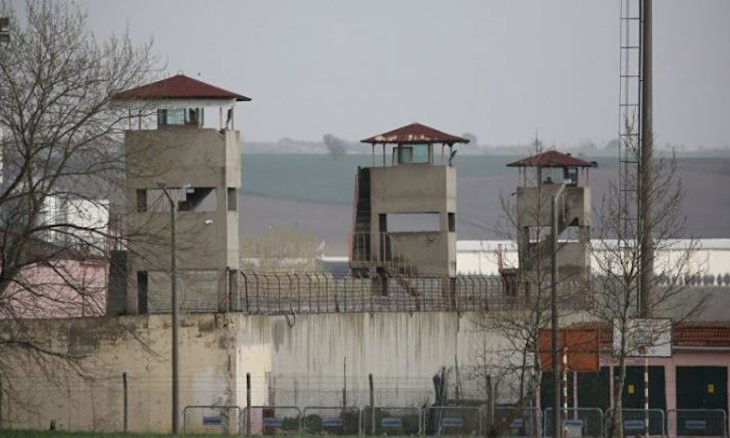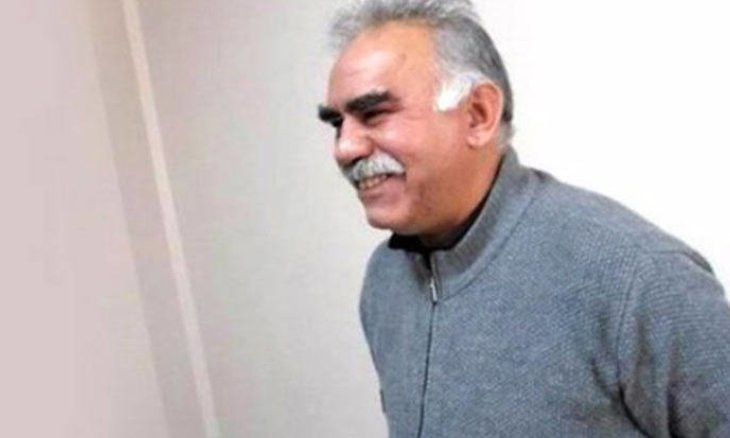Int'l anti-torture committee slams prison conditions, police ill-treatment in Turkey
The Council of Europe's Committee for the Prevention of Torture (CPT) has slammed prison conditions in Turkey, urging authorities to take "decisive action" against ill-treatment of police. The problem of prison overcrowding remained acute, the CPT said, and the steady increase in the size of the prison population already observed in the mid-2000s continued.
Duvar English
The Council of Europe's Committee for the Prevention of Torture (CPT) has slammed prison conditions in Turkey, urging authorities to take "decisive action" against ill-treatment of police.
The committee on Aug. 5 released two reports on its 2017 periodic visit and 2019 ad hoc visit to Turkey, in which it detailed its visits to a number of prisons in the country.
In its report on 2019, the CPT said that it visited a great number of police and gendarmerie establishments as well as remand prisons in different parts of Turkey and interviewed hundreds of persons who were or had recently been held in police custody in the capital Ankara, Istanbul and the southeastern provinces of Diyarbakır and Urfa.
The delegation aimed to look into the "considerable number" of allegations it received on the excessive use of force and physical ill-treatment by police and gendarmerie officers from persons who had recently been taken into custody, including women and minors.
These allegations mainly consisted of slaps, kicks, punches, including to the head and face and truncheon blows after the persons concerned had been handcuffed or otherwise brought under control, the committee said.
 CHP MP slams justice ministry for not revealing number of coronavirus cases in prisons for nearly 50 days
CHP MP slams justice ministry for not revealing number of coronavirus cases in prisons for nearly 50 daysAccording to the CPT, a significant proportion of the allegations related to beatings during transport or inside law enforcement establishments, apparently with the aim of securing confessions or obtaining other information, or as a punishment.
"Further, numerous detained persons claimed to have been subjected to threats and severe verbal abuse. A number of allegations were once again received of excessive use of force and physical ill-treatment by members of the mobile motorcycle intervention teams, so-called 'Yunus,' in Istanbul," it said.
"In a number of cases, the allegations of physical ill-treatment were supported by medical evidence, such as bodily injuries documented in medical records or directly observed by medical members of the delegation," it added.
The committee urged Turkish authorities to take "decisive action" on the issue to combat the phenomenon of police ill-treatment in Turkey and reiterated its recommendation that a clear and firm message of “zero tolerance” of ill-treatment be delivered to all law enforcement officials, from the highest political level, namely President Recep Tayyip Erdoğan.
Legal restrictions under police custody
Saying that the "severity of alleged police ill-treatment has diminished" compared to its 2017 visit, the CPT stressed that the frequency of allegations remains at a worrying level.
In its 2019 report, the committee voiced concerns on the existence of legal restrictions regarding access to a lawyer during the initial phase of police custody for certain serious crimes.
"Despite the specific recommendations repeatedly made by the committee after previous visits, the system of mandatory medical controls at the outset and end of police custody remained fundamentally flawed," the CPT said.
 Thousand words said for Osman Kavala on 1,000th day of imprisonment, 'conscience' tops list
Thousand words said for Osman Kavala on 1,000th day of imprisonment, 'conscience' tops list"Several persons claimed that they had been threatened not to show their injuries by police officers present during medical control," it added.
According to the committee, detention facilities were in a good state of repair and generally clean, but due to major structural deficiencies, the CPT considered these facilities to be unsuitable for detention lasting more than a few days.
Problem of prison overcrowding remains acute
The problem of prison overcrowding remained acute, the CPT said, and the steady increase in the size of the prison population already observed in the mid-2000s continued.
"With the exception of Diyarbakır Juvenile Prison, the official capacities of all the establishments visited were being greatly exceeded at the time of the visit. Consequently, a large number of inmates in these prisons did not have their own bed and had to sleep on mattresses placed on the floor," it said.
 Human Rights Association: Prisons in eastern Van province guilty of rights violations
Human Rights Association: Prisons in eastern Van province guilty of rights violations"Moreover, in some living units, prisoners were even obliged to share mattresses, as no floor space was left for additional mattresses," it added.
The committee called upon the Turkish authorities to take "decisive action" to curb prison population inflation and to eradicate prison overcrowding, in light of the remarks made in the visit report and relevant recommendations of the Committee of Ministers of the Council of Europe.
Öcalan's jail restrictions are 'not acceptable'
The committee also criticized Turkey over the restrictions imposed on jailed Kurdistan Workers' Party (PKK) leader Abdullah Öcalan.
It said that the restrictions on Öcalan and other inmates at İmralı Prison "are not acceptable," urging he be granted more outside contact and less solitary confinement.
During its rare access to İmralı, the CPT spoke to all prisoners and said they were treated “correctly” by prison warders, will no allegations of ill-treatment.
It said the four prisoners were still only allowed to meet as a group for six hours per week, and in pairs for another three hours per week, while association during daily outdoor exercise remained prohibited.
 Imprisoned PKK leader Öcalan's lawyers take communications ban to top Euro rights court
Imprisoned PKK leader Öcalan's lawyers take communications ban to top Euro rights court“As a result, all prisoners were being held in solitary confinement for most of the time,” it said, noting this amounted to 159 hours out of 168 hours per week, including 24 hours per day at weekends.
“In the committee’s view, such a state of affairs is not acceptable," it added.
The CPT also slammed the almost total absence of family visits in recent years to Öcalan and the turning down of requests for visits from his lawyers since 2019.
